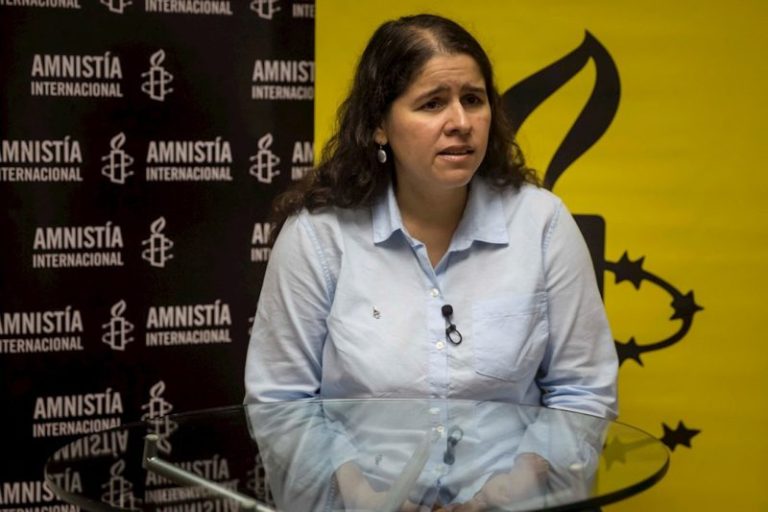11 de julio 2020

Children of Exile: The Births “Sowing Hope” in the Camp of Nicaraguan Farmers

PUBLICIDAD 1M
PUBLICIDAD 4D
PUBLICIDAD 5D
The “Nicaragua Never Again Human Rights Collective” presents its report: “Torture, an Ongoing Crime in Nicaragua”, endorsed by Amnesty International

The “Nicaragua Never Again Human Rights Collective” presents its report: “Torture
“Torture in Nicaragua has been aimed at fabricating testimonial evidence that incriminates certain people,” says Carolina Jimenez, Amnesty International’s deputy director of Investigations for the Americas, whose office endorsed in a virtual forum the most recent report by the “Nicaragua Never Again Human Rights Collective” titled “Torture, an Ongoing Crime in Nicaragua”.
The Amnesty International representative also added that “to obtain information on how the protests were organized” against the regime of President Daniel Ortega, “and as a method of punishment so that anti-government protests are not repeated,” she denounced.
According to the report presented by the group dedicated to the defense of human rights; Torture in Nicaragua is a “generalized and current” practice that existed before the protests against the Ortega government that erupted in April 2018.
“Torture in Nicaragua is a crime that increased and intensified as of April 18, 2018, however, more than two years after the start of the protests, it is still in force, and is practiced in a general and systematic way,” denounced Salvador Lulio Marenco, an attorney of the Collective.
The NGO notes that its report is the result of documenting eight cases of torture, cruel, inhuman and degrading treatment, which occurred in 2019, “both in official and clandestine prisons.”
Marenco said that the Nicaraguan Observatory Against Torture, a unit of the Collective, also documented “the serious situation that people deprived of liberty are going through,” including 96 political prisoners, due to the covid-19 pandemic.
“The unhealthy and overcrowded prison conditions (…) the constant stress of possible contagions, consists in itself of cruel, inhuman and degrading treatment,” said the lawyer.
Since the anti-government protests of 2018, Nicaragua has been going through a deep socio-political crisis that has left hundreds of dead, prisoners or missing, thousands of wounded, and tens of thousands of exiles, according to data endorsed by various international organizations.
Daniel Ortega, the Nicaraguan president, argued that he only defended himself from an alleged “failed coup,” of which he has accused the United States and singled out the Nicaraguan Catholic Church as “coconspirators.”
Currently, the Organization of American States (OAS) is in the process of applying the Inter-American Democratic Charter against Nicaragua for violation of the constitutional order, which if fully executed would mean the expulsion of the country from that body.
PUBLICIDAD 3M
Agencia de noticias internacional con sede en Madrid, España. Fundada en Burgos durante la guerra civil española en enero de 1939.
PUBLICIDAD 3D